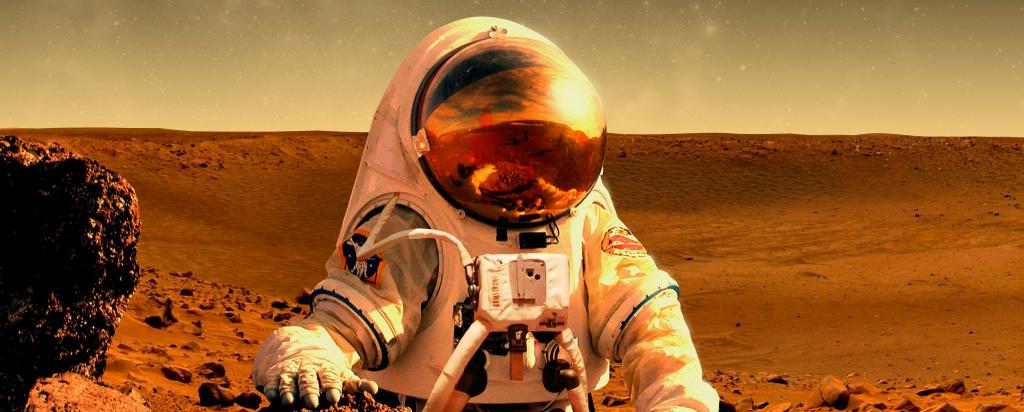
Life On Mars (with cosmic radiation)
| Date |
Wed 18 Aug at 6.00pm - Wed 18 Aug at 7.00pm
|
| Cost |
Free
|
| Venue | Online |
| Register | |
Join us for National Science Week to hear from an ANSTO user and the 2021 AIP Women in Physics lectureship award winner A/Prof Susanna Guatelli on radiation protection of astronauts in human missions to Mars.
Human missions to Mars have been identified as a main goal of human exploration by the International Space Exploration Coordination Group in 2013. The roadmap to the human exploration of Mars started with the International Space Station mission about twenty years ago and is envisaged to continue with a human outpost on the Moon and finally with a mission to Mars within the next twenty years. A human mission to Mars would expose astronauts to serious health hazards, including acute and late risks caused by exposure to cosmic radiation, eventually leading to cancer and death. The design of shielding solutions and of powerful and accurate radiation monitoring systems are subjects of research to facilitate the human exploration of the Solar System. However, the testing of proposed novel technologies is limited on Earth as there are no accelerator facilities capable to reproduce the complex cosmic radiation field the astronauts would encounter in space. In the past fifteen years, Monte Carlo simulations, capable to describe cosmic radiation interactions in space mission habitats and in astronauts, demonstrated to be an extremely useful tool for radiation protection studies of astronauts. This seminar will begin with a description of the health hazards in astronauts caused by cosmic radiation and of Monte Carlo simulations for space exploration. The speaker will then illustrate her research in this field aimed to develop simulation tools to improve the prediction of health hazards in astronauts.
A/Prof Susanna Guatelli trained as a nuclear physicist at the University of Genova, Italy. In 2003 she had the opportunity to undertake a PhD in physics, based at the European Organisation for Nuclear Research (CERN). Her enthusiasm for medical physics drove her to study possible radiation protection solutions for human missions to Mars (a project led by the European Space Agency) as her PhD research topic. In 2007 she moved to Australia and since 2009 she has been an academic at the School of Physics, University of Wollongong where she is the academic director of the Medical Radiation Physics Bachelor Degree. She is an internationally recognised expert of Monte Carlo simulations for medical applications, including radiation protection of astronauts.
Details of the webinar event will be sent closer to the event date.